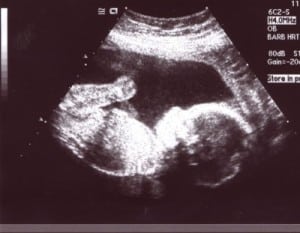
Researchers now believe that preeclampsia may be caused by a battle between the mother’s uterus and the baby’s placenta. Made up of cells called trophoblasts, which are controlled by the father, the placenta’s primary goal is to pull nutrients from the mother during pregnancy through the uterus. The mother’s need to live counteracts the efforts of the father’s trophoblasts by sending lymphocytes to destroy the invasive cells.
To divert the mother’s lymphocytes, the placenta secretes a placental protein – PP13. This protein travels through the mother’s veins into the uterus below the placenta. This triggers the mother’s body to attack the protein instead of the placenta. As the mother’s lymphocytes attack the protein secretions, the area around the veins becomes inflamed and cells die off – a process known as necrosis.
Study leader Harvey J. Kliman, M.D, research scientist in the Department of Obstetrics, Gynecology & Reproductive Sciences at Yale School of Medicine stated, “We realized that these zones of necrosis are likely occupying the mother’s soldiers while the invasive trophoblasts sneak into her arteries, leading to more blood flow to the placenta and a bigger baby.”
If the diversion doesn’t work, then the mother’s uterus will attack the placenta. According to the researchers, this may be what actually causes preeclampsia, saying, “We believe that maintaining this balance could be the key to a healthy pregnancy free from preeclampsia.”
The study was published in the October 11, 2011 online issue of Reproductive Sciences.
Related Articles:
- Mom Runs Chicago Marathon and Gives Birth 7 Hours Later
- Study: Stress Experienced by Preemies in NICU Reduces Brain Size
- Study: Women with Recurrent Miscarriages May Benefit From Fibroid Removal






